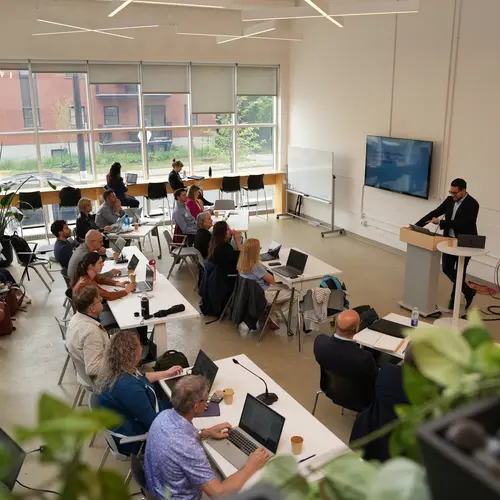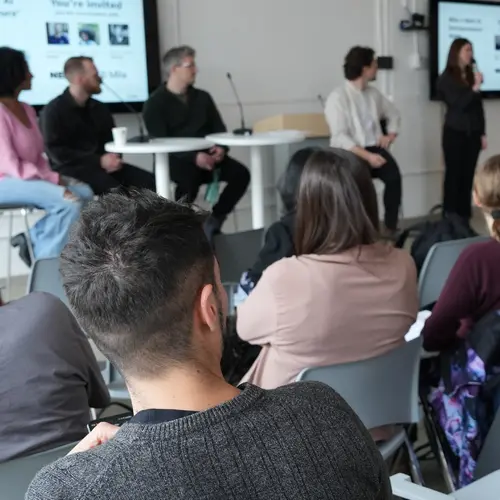
Geoff Gordon
Biography
Geoffrey Gordon is an adjunct professor in the Machine Learning Department at Carnegie Mellon University. He previously served as interim department head and associate department head for education in Carnegie Mellon’s Machine Learning Department.
In general, Gordon’s interests lie in AI, statistical machine learning, educational data, game theory, multi-robot systems, and planning in probabilistic, adversarial, and general-sum domains.
More specifically, his research has focused on artificially intelligent systems that are capable of long-term thinking, such as reasoning ahead to solve a problem, planning a sequence of actions or inferring unseen properties from observations. In particular, he looks at how to combine machine learning with these long-term thinking tasks.
Gordon received his BSc in computer science from Cornell University in 1991, and his PhD in computer science from Carnegie Mellon University in 1999. His previous appointments include visiting professor at Stanford’s Computer Science Department, and principal scientist at Burning Glass Technologies in San Diego.



